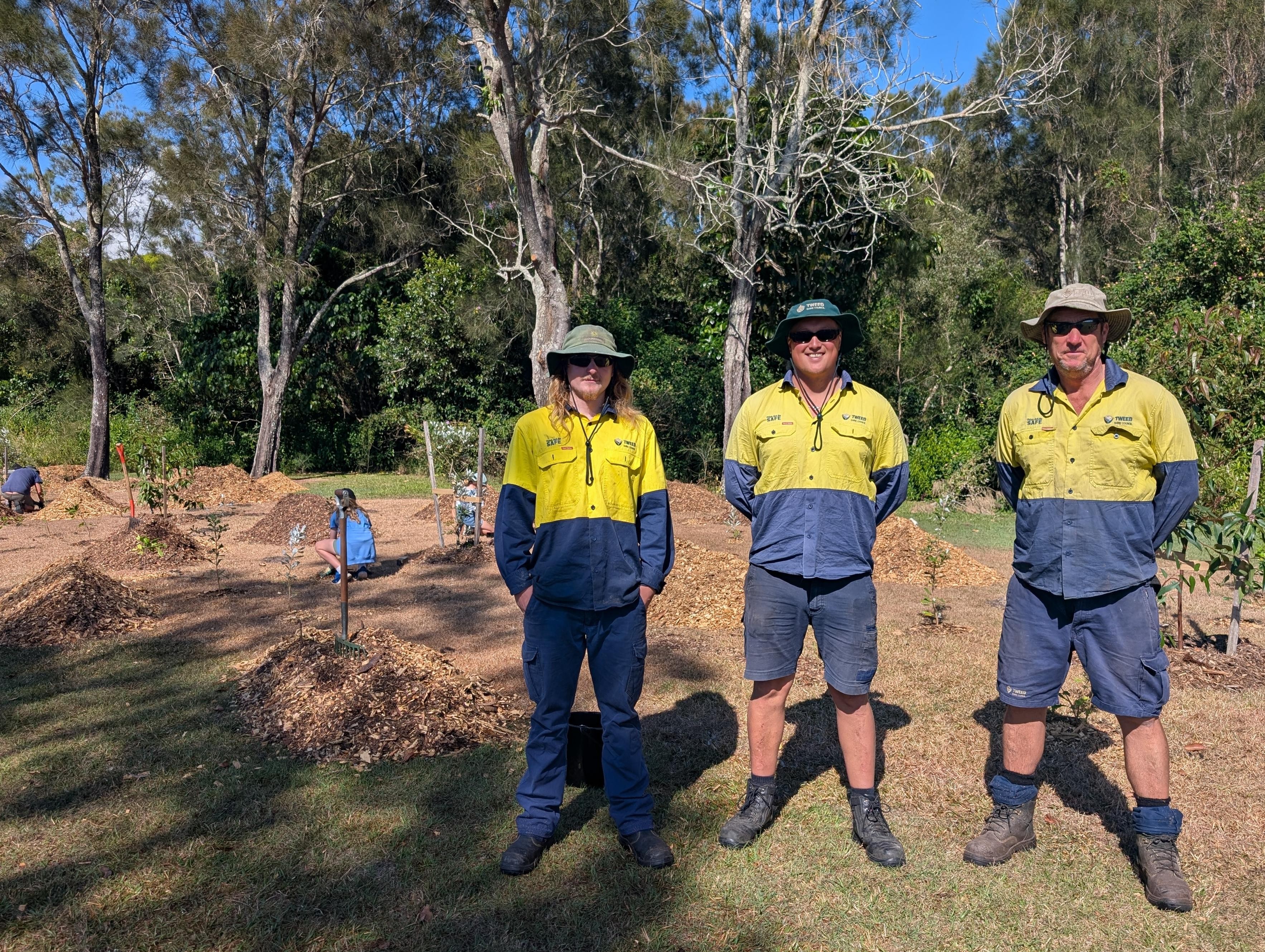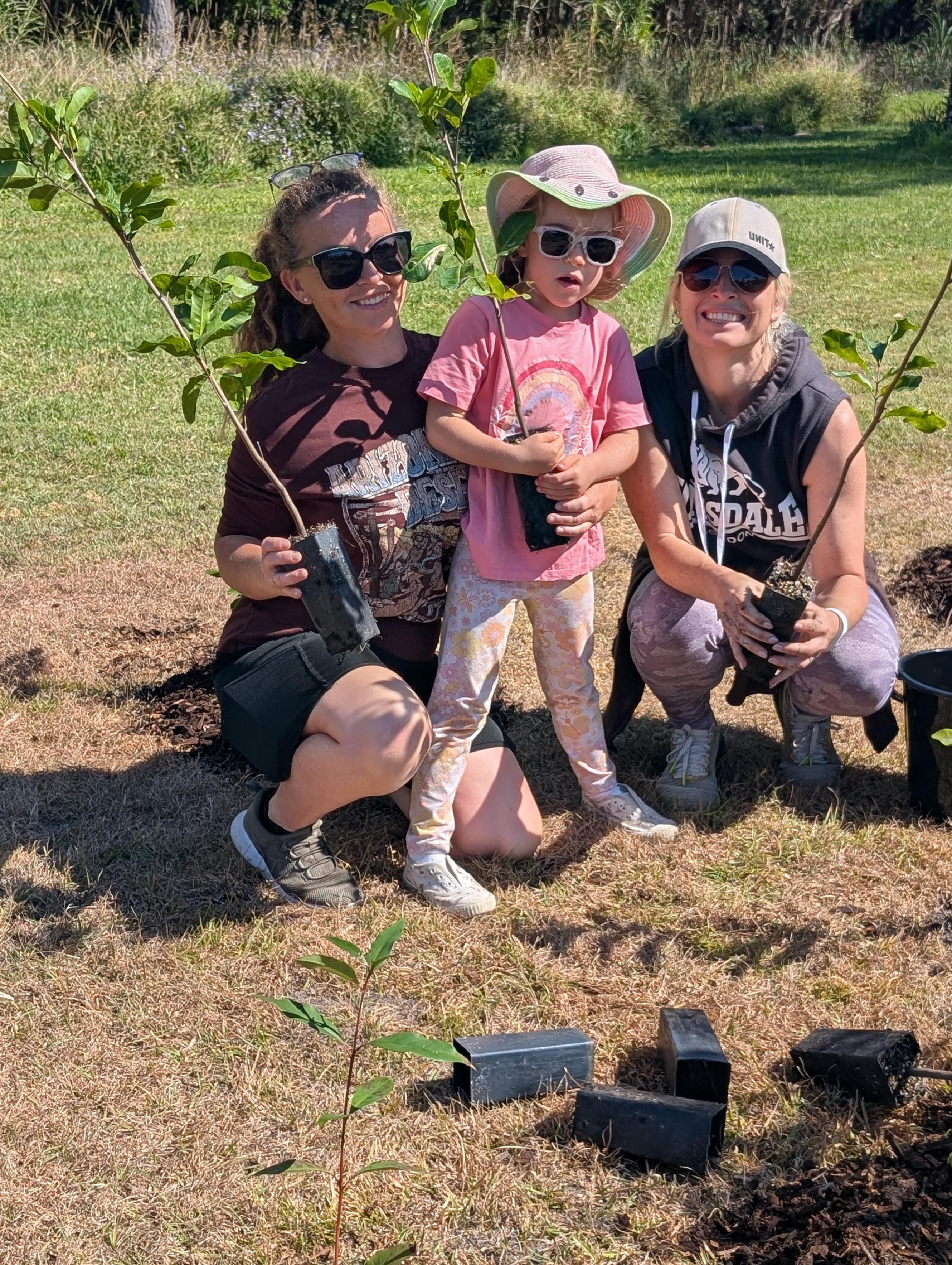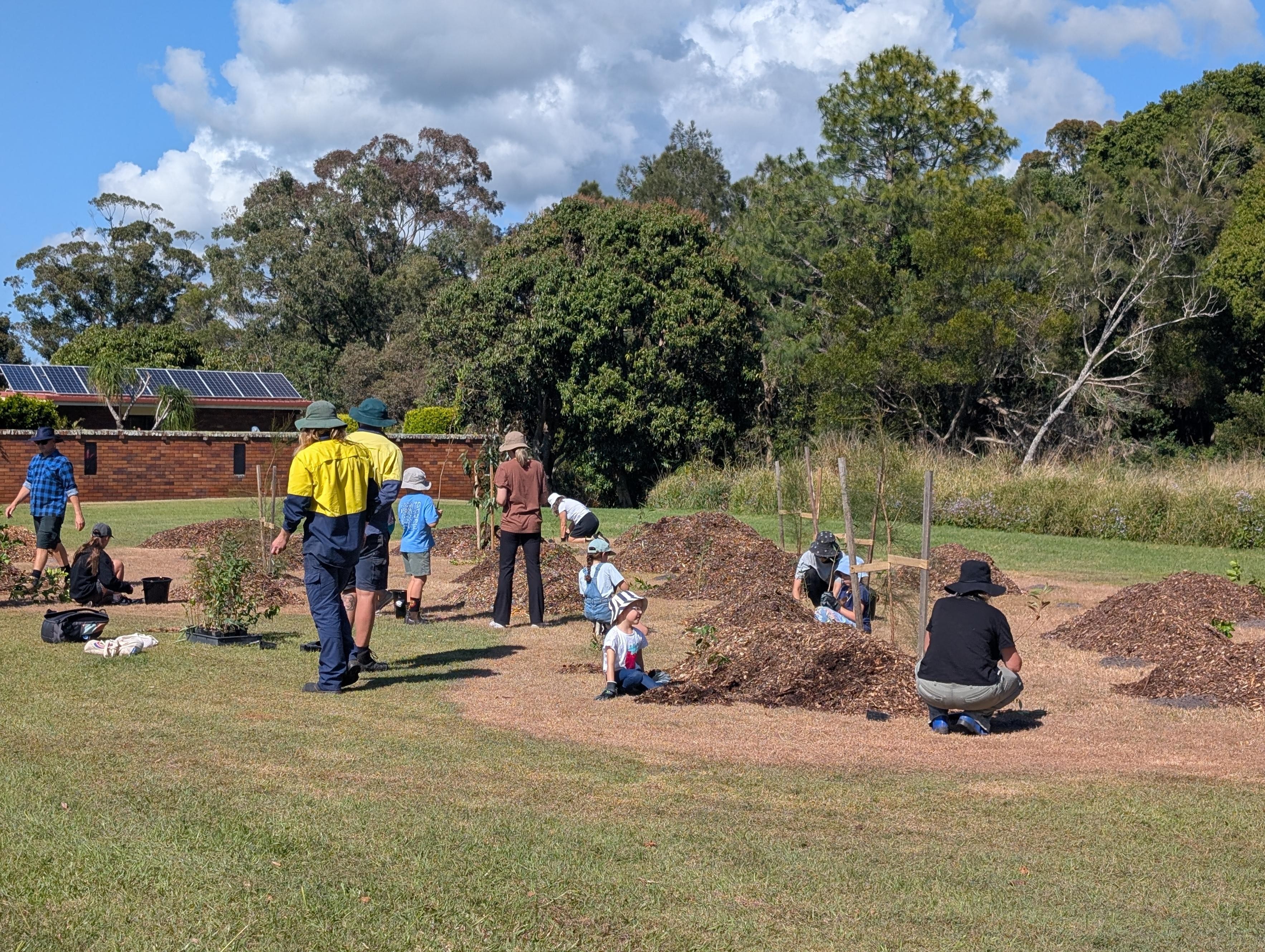Cool Towns - Tweed Shire Urban Forest Program

Community tree planting day: Kingscliff
Thank you for joining us in Kingscliff on Sunday 14 September to plant new trees in the park opposite Sand Street and Terrace Street. The community helped plant, mulch and water 180 new seedlings that will grow to provide shade, homes for wildlife and a cooler, greener community.
The planting is part of Council’s plan to replace and grow tree cover after expanding Merv Edwards Sports Field for the local junior AFL club. Council has also planted 40 large trees along Terrace Street and the field’s perimeter.
Species included coast banksia, lilly pilly, broad-leaf paperbark and forest red gum.






Completed: Murwillumbah CBD tree planting and beautification
As part of the Cool Towns Urban Forest Program, Council has planted 4 new street trees in Murwillumbah CBD to provide more shade and improve the area’s amenity.
The project provided shade, landscaping and seating to enhance the beauty and character of the Murwillumbah CBD.
This project was completed with the support of grant funding from the Australian Government's Local Roads and Community Infrastructure fund.
The second phase of the project will plant an additional 7 trees where declining trees have been removed. These trees will use an improved planting method to ensure the longevity and health of the tree, providing a shade for a healthy future in Murwillumbah.





Cool Towns - increasing shade and reducing urban heat in the Tweed Shire
The Tweed’s natural landscape and biodiversity is of international significance and Cool Towns aims to bring the benefits of nature into urban centres. Trees in urban areas bring a multitude of benefits to the community, the environment and the economy, including:
 Summary of the broad array of benefits trees provide
Summary of the broad array of benefits trees provideOur goal for Cool Towns is to increase the amount and quality of tree canopy within urban areas of the Tweed, including all trees and vegetation, providing shade, cooling and amenity values. Areas of focus may include:
- Natural shade for parks, playgrounds and open spaces
- Street trees along arterial roads, shared paths, civic spaces and residential streets with minimal tree coverage
Tell us where we need more street trees
Where are the public spaces that need more trees for shade and cooling?
Have your say to let us know about the parks, walkways, pedestrian areas or streets that need more shade coverage to help us prioritise where funding should be spent for new tree planting projects.
Take the survey, or drop a pin on our interactive map.
Request a tree on your nature strip
To request tree planting on nature strips or paths outside your residence, complete the service request form for tree planting.
Requests are subject to site assessments, and if suitable will be allocated for winter planting schedules.



